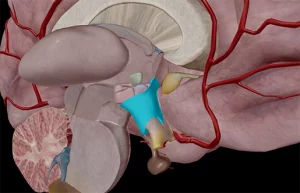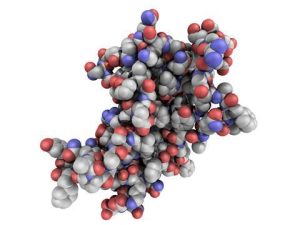Hormones serve as the intricate messengers orchestrating the symphony of bodily functions. These microscopic chemicals wield profound influence, regulating everything from growth and development to metabolism and mood. Understanding the science behind hormones unveils the complexity and elegance of the body’s internal communication system.
Hormones
At their core, hormones are signaling molecules secreted by various glands, traveling through the bloodstream to target cells or organs equipped with specific receptors. They act as command prompts, directing cells to carry out specific tasks. Produced by endocrine glands—like the thyroid, pituitary, adrenal, and pancreas these chemicals fine-tune biological processes.
The Orchestra of Endocrine Glands
Each gland plays a specialized role. The thyroid gland, for instance, secretes hormones crucial for metabolism regulation, while the adrenal glands produce cortisol, managing stress responses. The pituitary gland, often termed the “master gland,” governs the release of hormones controlling other glands. The intricate interplay between these glands ensures bodily harmony.
The Intricacies of Hormonal Regulation
Maintaining balance is critical; even a slight deviation in hormone levels can trigger significant effects. For instance, insulin, produced by the pancreas, regulates blood sugar levels. Disruption in insulin production leads to diabetes, disrupting the body’s ability to manage glucose.
Hormones and Growth
During development, hormones play pivotal roles. Growth hormone, released by the pituitary gland, fuels physical growth in childhood and adolescence. Sex hormones, like estrogen and testosterone, guide sexual development and reproductive functions.

The Impact on Mood and Emotions
Hormones also wield influence over emotions. Serotonin, often referred to as the “feel-good” hormone, contributes to mood regulation. Imbalances in serotonin levels are linked to conditions like depression and anxiety.
The Delicate Balance
Several factors affect hormonal balance. Stress, diet, exercise, sleep, and environmental factors all influence hormone production and regulation. Disrupting this balance can lead to various health issues, highlighting the importance of lifestyle choices in maintaining overall well-being.
Hormonal Changes Across the Lifespan
Hormonal fluctuations occur throughout life. Puberty heralds a surge in sex hormones, leading to physical and emotional changes. Women experience hormonal shifts during menstruation, pregnancy, and menopause. Understanding these changes helps navigate associated challenges and promotes better health outcomes.
Disorders Arising from Hormonal Imbalances
Disorders stemming from hormonal imbalances are diverse and impactful. Conditions like hypothyroidism, hyperthyroidism, Cushing’s syndrome, and polycystic ovary syndrome (PCOS) underscore the breadth of effects arising from hormonal irregularities.

Advances in Hormonal Research and Treatment
Advancements in science continuously expand our understanding of hormones, enabling more targeted treatments for hormonal disorders. From hormone replacement therapies to precision medicine, these breakthroughs offer hope for individuals grappling with hormonal imbalances.
Conclusion
The intricate dance of hormones orchestrates the body’s functions, underscoring their indispensable role in maintaining health and vitality. Understanding the science behind hormones illuminates the complexity of our biological machinery and underscores the significance of maintaining hormonal balance for overall well-being. As research progresses, unlocking the mysteries of hormones holds promise for addressing various health challenges and improving lives. Hormones, the silent conductors of the body’s orchestra, continue to intrigue scientists, offering a glimpse into the marvels of human biology.




